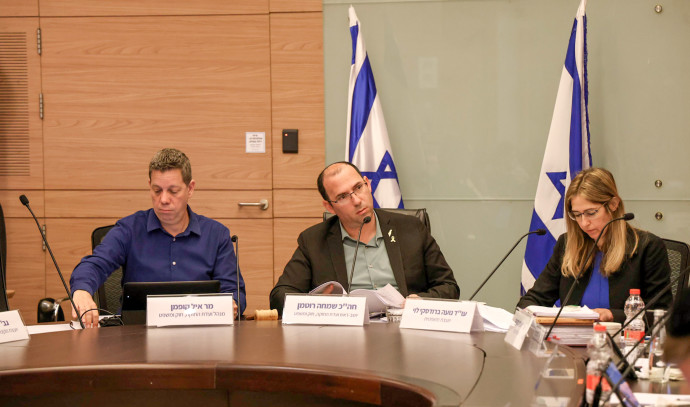The Knesset’s Constitution, Law, and Justice Committee approved on Wednesday a first reading of the proposed changes to the Youth Law 2023, which MK Yitzhak Kreuzer initiated with the help of a group of MKs, according to a Knesset press statement.
The committee approved the proposed changes in the wording order that came into force in 2016-2020, according to which, in crimes of murder, manslaughter, and attempted murder, the court would be allowed to order a minor below the age of 14 years old on the day of sentencing to initially be kept in a supervised dormitory and that their sentence will continue to be served in prison after he has served at least 14 years.
Follow-up hearings were also decided to occur at the end of the detention period and before the minor was transferred to prison.
How the hearings work
During the hearing, the court will be presented with a probation officer’s report and the opinion of the dormitory supervisor, and after considering the case’s circumstances, e.g., the effect of imprisonment, the minor’s age at the time of the offense, and his personal circumstances.
The court may then order to postpone the date of transfer to prison, the shortening of the period of imprisonment, as determined by the court, or the cancellation of the period of imprisonment.
This will primarily affect those arrested for terror offenses between the ages of 12 and 14.
Chairman of the Committee, MK Simcha Rothman, expressed an interest in allowing the supervised dormitories to send minors to prison for a maximum of 10 days at a time if requested by the dormitory supervisor.
“The fact that we are dealing with youth complicates this, but the rationales and purposes of the Youth Law were not designed to deal with the reality of a society that actually supports and incites [terror], Rothman said after passing the committee vote.
“A boy who becomes involved in drugs will not receive the sympathy of his family, school, or community. His picture will not hang on the wall, and his neighbors will stay away. We all heard the phone call of the terrorist who left Gaza for the levels, and his family glorified the fact that he killed Jews. He is not considered the problem child that no one wants to play with, and we have to deal with that.”
MKs Gilad Kariv and Ofer Cassif were removed from the committee after making a commotion, complaining that they had not been given enough time to speak and question the bill.
Rothman accused them of trying to filibuster the vote, and Kariv hit back, accusing the legislators of riding a “populist legislative wave” and “returning us back to October 6.”







